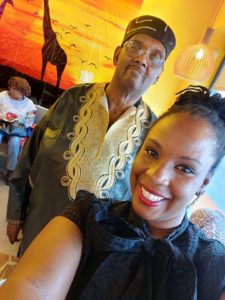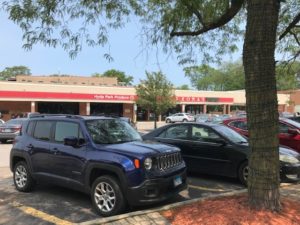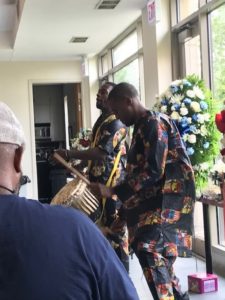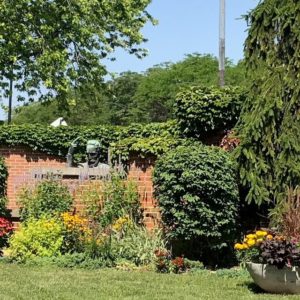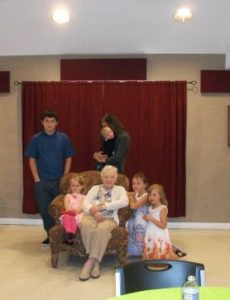We are probably all born with a certain focus on our own needs. The first job of a baby is to survive, but ideally, we learn from parents, especially, but also from others around us that somebody else cares and takes care of us when we most need the help. With any luck, we learn to extend that same concern from ourselves to others, and as we grow, we learn how we can support and cooperate with our fellow human beings. Empathy must be taught, and not everyone learns, or learns well.
I would like to believe that this article will reach someone and cause them to think about any potential victims of their actions. Maybe it will, but I also doubt that the most violent among us are reading my blog. I have good reason to suspect that my content over the past eight years, while apparently attracting more than 31,000 subscribers, has not provided much raw meat for those who feel the need to attack others to get what they want. They may not read much at all. But I can hope.
But I must wonder sometimes whether perpetrators of violent crimes, especially those involving theft, give much consideration to their victims. The overwhelming majority of victims of violence mean something to someone. In some cases, they may have networks of friends upon whom they are positive influences. They may be positive assets for local communities, whether those be neighborhoods, religious congregations, schools, or extended families. They mean something to other people, and the community will be weaker without them.
Or do their attackers just see them as vulnerable prey, much as a bobcat might view a rodent when the cat is hungry?
I keep wondering about one such recent victim in Chicago. We have plenty of victims in Chicago, often of gun violence, though in this case no gun was involved. His car was the object of desire, and a 73-year-old man, moving slowly, became the target of an attempted carjacking. The two youths hit him in the head, then pushed him in the chest, and he died of a heart attack. Two young men, 18 and 17, now face serious charges and may end up sacrificing many years of their lives in prison. Their future looks bleak.
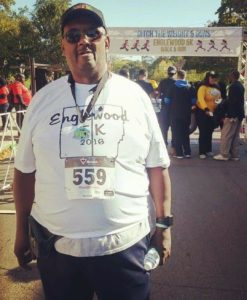
Keith Cooper at a 5K “Ditch the Weight & Guns” walk & run in Chicago’s Englewood neighborhood. Photo provided by Keinika Carlton.
Keith Cooper, the victim, was a member of Augustana Lutheran Church, to which I belong, and a vital, active part of the Hyde Park neighborhood that surrounds it. He was a proud Marine Corps veteran, having joined in 1968 at age 21 and served in Vietnam. When you needed a volunteer, he was likely to be there.
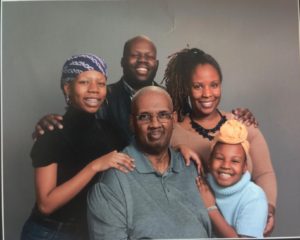
Keith with daughter Keinika, her husband Curtis Carlton, and granddaughters Alyna and Mikayla. Photo provided by Keinika Carlton.
“He just loved to help,” his daughter, Keinika, says. “He was a community-based individual.” When she was growing up, she recalls, he taught his children that “you can’t complain if you don’t do anything.” Ever seeking to mentor those he loved, he brought granddaughter Mikayla, now 11, to Sunday school when he came to church. Keinika said he joined Augustana about ten years ago. He was, however, already familiar with the church from growing up in the neighborhood near 54th and Kimbark on Chicago’s South Side.
But it was more than growing up near the church. Keith told the current pastor, the Rev. Nancy Goede, that he had been baptized there as a child. Keinika had Sunday school attendance slips from 1959, when he was 12. Later, as a teen, he served as an acolyte. He drifted away in his teens, but returned as a mature adult. In recent years, I often served with him as an usher.
He joined the church shortly after two heart surgeries that were necessitated by a torn aorta and involved heart valve replacement. Keinika describes her time in the waiting room as “nerve wracking.” Her father underwent rehab to rebuild his body. For this very reason, she says, when she learned of the nature of the attack the day it occurred, she knew why his heart failed. She knew, she says, that he would not survive.
That is, however, part of the problem with random victimization of an old man the attackers never knew. It probably never occurred to them that their physical assault could result in death. They knew nothing of this personal history, or why he seemed to be moving slowly, if that was their perception, but now they own the consequences. As Judge Charles S. Beach II said in addressing Frank Harris, the 18-year-old, as they were charged in court with murder, “To say that it’s painful for me is an understatement—because anytime that I see a young man such as you before me with such a terrible thing on their shoulders, it’s painful for us and society and just about everyone.”
As Keinika asked during an interview with me last week, “Did you all even think this through?”
What is stunning about the entire incident is that it occurred in broad daylight in a busy commercial strip, Kimbark Plaza. It occurred roughly between 12:30 and 12:40 p.m. in a crowded parking lot, with numerous surveillance cameras. There were reportedly dozens of witnesses in nearby stores, many of whom came out, including an off-duty paramedic who tried to revive him as he lay on the ground, unresponsive, until police arrived. Sadly, he was already dead when an ambulance brought him to nearby University of Chicago Hospital. He had been at Kimbark Plaza to run errands. He often shopped for groceries at Hyde Park Produce.
Meanwhile, having failed to open the car, a Hyundai Santa Fe SUV, the two young men fled but were identified and arrested by police about a half-mile away, trying to change clothes in a synagogue courtyard. Harris was about to become a senior in high school, but the two had some prior arrests, including other carjackings in May and last December.
Keith will be sorely missed by those who knew him—and there were plenty who did. As the Hyde Park Jazz Festival grew as an area attraction each summer, it was Keith who helped arrange for some artists to perform at Augustana. When volunteers were needed to park cars for events like the Jazz Fest or the 57th St. Arts Fair, earning parking fees to support the church, it was most often Keith who could be found collecting the fees and directing people to available spaces. For his 74th birthday, which would have occurred July 22, his Facebook request was to raise $500 for his beloved church. My wife attended one of his AARP-sponsored driver skills refresher courses at the church for seniors who could then get small discounts on their car insurance. Keith was the host. Keinika says he was involved in a recent Juneteenth festival. I could go on, but you get the idea. Church, school, neighborhood, the city of Chicago, he loved them all and supported them all.
From years of passing conversations with him, I gathered the impression that part of his motivation may have come from his own struggles. At one point earlier in his life, he was briefly homeless. He knew what that felt like and gladly assisted with a monthly community breakfast for disadvantaged people. Bill Tompsett, a retired attorney and long-time member of Augustana, says he helped by greeting people as they arrived, but when he was missing for a few weeks, Keith asked him why. Bill explained that he had hurt his back and could not stand for two hours to greet people. Keith assured him that he could still greet people sitting down, and he resumed his duties. Little things like that mattered. Keith did several jobs in his life, including driving trucks and selling jewelry and books. His daughter told reporters he had “tons of books,” among which he particularly liked black history and science fiction. In retirement, he was driving a Lyft car to earn extra money. Keith knew from personal experience that there are many people struggling to survive in our community, and he sought to help where he could.
It is noteworthy that more than 100 people gathered at Kimbark Plaza on Friday evening, July 16, two days after Keith died, to honor his life and offer prayers, holding candles while West African drums were played.
Those “talking drums” were also present a week later, on Saturday, July 24, for a visitation in the Augustana fellowship hall, at which members of the U.S. Marine Corps also presented a flag to honor his service. Dozens of participants in the event responded to Keinika by offering one-word descriptions of Keith such as “kindness” and “commitment.” Two days later, following a moving funeral service, his ashes were interred in the memorial garden outside the fellowship hall, where he joined other saints who preceded him.
The city of Chicago and Hyde Park lost a valuable, generous, and committed citizen because, once again and too often, some people, too often too young, chose a path in which they failed to consider who their victim might be, what he meant to those around him, and what they took from their community as a result. It was all very sad, and I kept thinking during the funeral, all very unnecessary.
Jim Schwab

